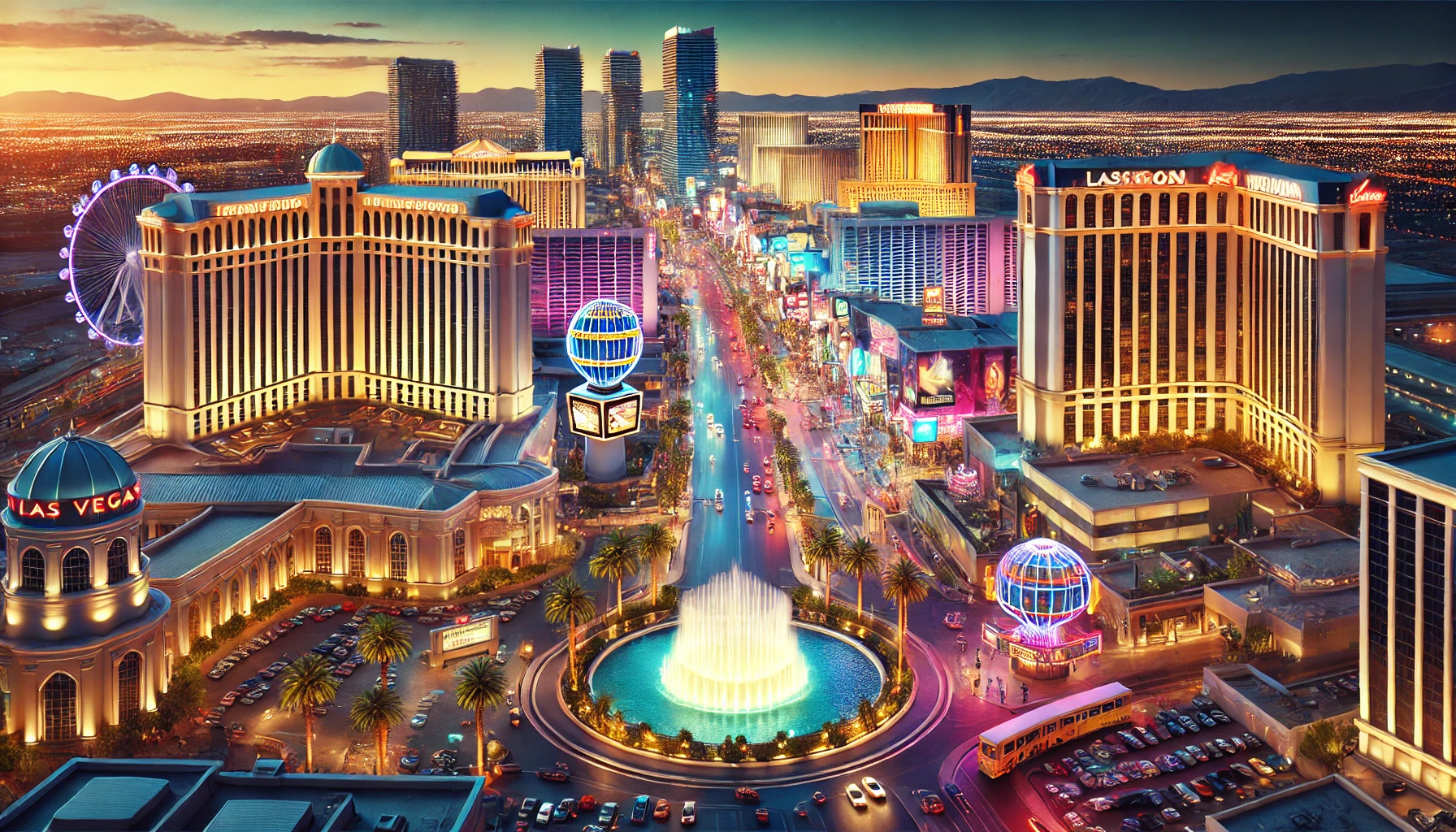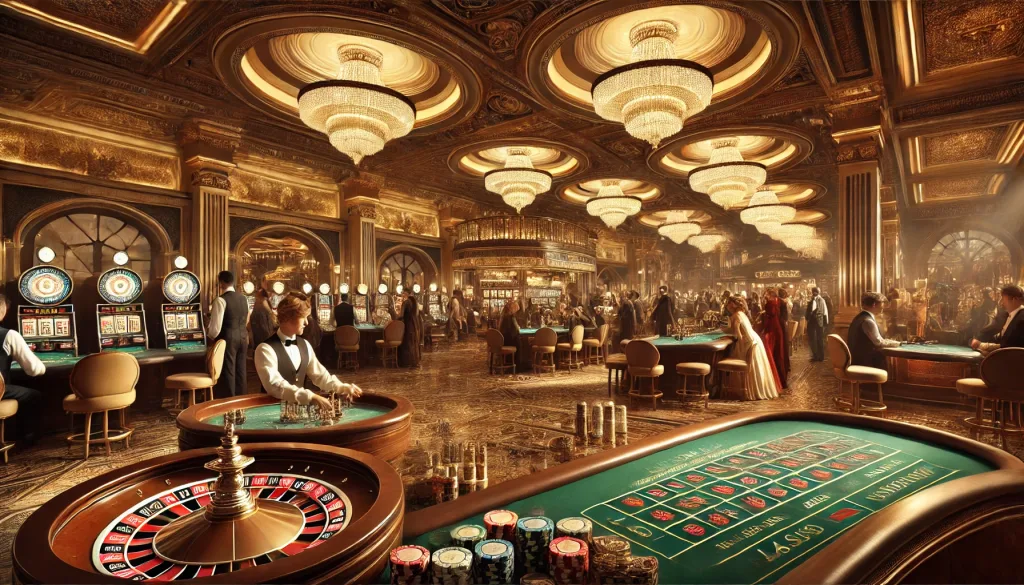
The Role of Casinos in Las Vegas’ Economy in the 20th Century
Las Vegas, famously known as the “Entertainment Capital of the World,” underwent a significant transformation throughout the 20th century. What began as a modest desert town evolved into a global hub for gambling, entertainment, and luxury. The pivotal role of casinos in shaping the city’s economy cannot be understated, as they brought unprecedented levels of revenue, employment, and international recognition. The story of how this city became synonymous with glamour and gambling is a testament to strategic economic planning and cultural shifts.
The Rise of the Casino Industry
In the early 20th century, Las Vegas was primarily a small railroad town with little to distinguish it from other Western settlements. However, the legalization of gambling in 1931 marked the beginning of its dramatic economic shift. This legislative change coincided with the construction of the Hoover Dam, which brought an influx of workers and created a demand for leisure activities, including gambling. While the early establishments were modest, they laid the groundwork for the extravagant casino culture that would later define the city.
The rapid growth of the population, coupled with the strategic location of Las Vegas as a travel stop, made it an ideal location for the gambling industry to flourish. The 1930s and 1940s saw the emergence of larger casinos, often funded by influential figures and organizations. These establishments began incorporating additional entertainment options, such as live music and variety shows, which broadened their appeal beyond traditional gamblers.
The Birth of Iconic Casinos
The 1940s and 1950s saw the emergence of iconic establishments like the Flamingo, built by mobster Bugsy Siegel. These casinos introduced a new level of luxury and entertainment, attracting tourists from across the United States. Their success spurred further investments, transforming Las Vegas Boulevard into the world-renowned Las Vegas Strip. The city’s reputation as a gambling haven began to solidify, laying the groundwork for future economic growth.
Alongside the luxurious casinos, smaller gambling halls and local bars thrived, creating a vibrant ecosystem of entertainment. The combination of exclusivity in high-end resorts and accessibility in local establishments allowed Las Vegas to cater to a diverse audience. This dual approach ensured a steady influx of tourists and locals, contributing to the city’s expanding economic footprint.
Economic Contributions of Casinos
By the mid-20th century, casinos had become the backbone of Las Vegas’ economy. They generated significant tax revenues, funding public infrastructure and services. Additionally, they created thousands of jobs, not only in the gaming industry but also in construction, hospitality, and entertainment. The economic ripple effects extended beyond the city, benefiting the entire state of Nevada. These revenues also helped promote further investments, such as the development of airports, highways, and urban housing projects.
The ability of casinos to attract tourists from across the globe meant that Las Vegas became an international destination for leisure and business. Conventions, trade shows, and corporate events began to be hosted in the city, further diversifying the sources of income. This combination of tourism and professional events ensured that the city maintained its economic growth during fluctuating gambling revenues.
Diversification Through Entertainment
While gambling remained the primary draw, casinos diversified their offerings to include live performances, fine dining, and luxury accommodations. Stars like Elvis Presley and Frank Sinatra made Las Vegas a cultural hotspot, attracting a broader audience and boosting tourism. This diversification further cemented the city’s economic reliance on the casino industry.
The shift towards family-friendly entertainment in the 1990s was another milestone in the city’s economic strategy. Resorts began incorporating theme parks, shows for children, and non-gambling attractions to appeal to a wider demographic. This move ensured that Las Vegas remained relevant in a competitive global market, highlighting its ability to adapt and evolve with changing consumer preferences.

The Global Impact of Las Vegas Casinos
As Las Vegas flourished, its casinos became a model for international gambling hubs. The success of the Las Vegas Strip inspired similar developments in places like Macau and Singapore. By the end of the 20th century, Las Vegas was not just a city—it was a global brand synonymous with entertainment and indulgence. The economic model of combining gambling with luxury hospitality set a benchmark for other cities aiming to replicate its success.
Moreover, Las Vegas played a critical role in shaping perceptions of gambling as a legitimate form of entertainment. This shift in perspective paved the way for regulatory changes in other countries, allowing for the establishment of regulated gambling markets worldwide. The city’s influence extended beyond economics, shaping cultural narratives and industry standards.
Challenges and Adaptations
Despite its success, the casino industry faced challenges, including economic downturns and changing consumer preferences. To stay competitive, Las Vegas continuously reinvented itself, embracing new technologies and trends, such as online gambling and themed resorts. These adaptations ensured the city’s continued prominence in the global gambling industry.
The introduction of digital gaming platforms and mobile applications marked a new era in the gambling sector. While these advancements posed competition, they also created opportunities for collaboration, such as hybrid experiences that integrated digital and physical gaming. This innovation-driven approach enabled Las Vegas to maintain its edge in a rapidly evolving market.
Through strategic growth and diversification, casinos played a central role in transforming Las Vegas into an economic powerhouse. Their influence extended far beyond the city, shaping global perceptions of gambling and entertainment. As a testament to human ingenuity and adaptability, the legacy of Las Vegas’ casinos continues to inspire and innovate.
